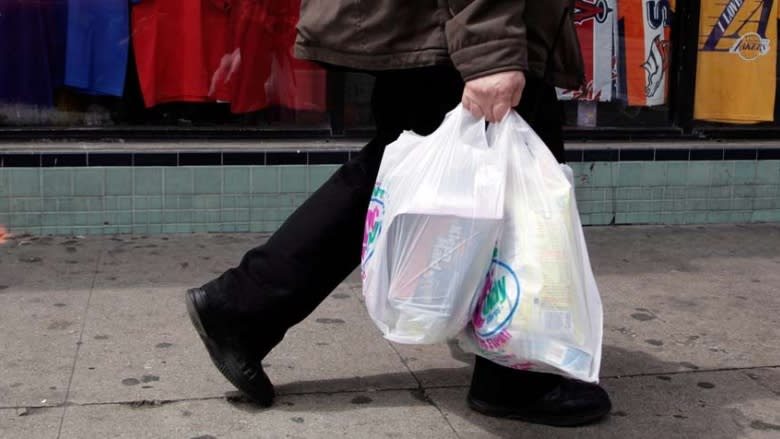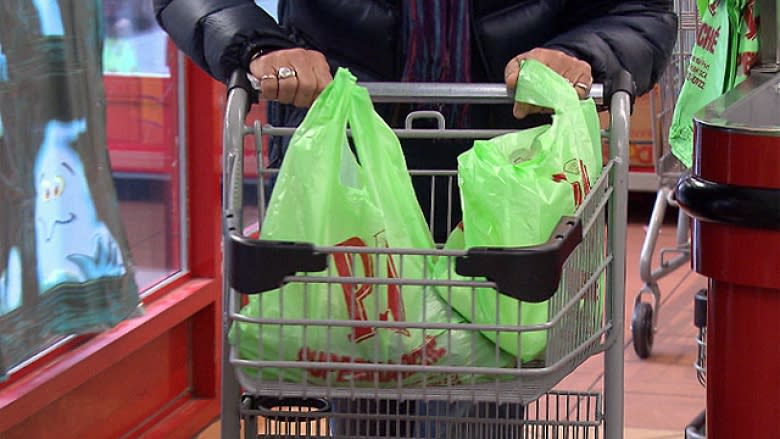Thick, reusable plastic bags aren't more eco-friendly than the thin ones Montreal banned, study finds
The thick, reusable plastic bags being offered by some merchants as an alternative to the thin, single-use ones banned by the City of Montreal aren't any better for the environment, according to a new study by a Quebec recycling group.
Recyc-Quebec found that the thin plastic bags, which need to be phased out by June 5, have the lowest environmental impact of any disposable bag.
According to the study, the thicker plastic bags needs to be used three to six more times to become more environmentally sustainable than the thin ones.
Despite the results, however, the city maintains the flimsy nature of the thin bags is more detrimental to the environment.
"Often [the thin plastic bags] will tear, they'll end up in the environment, hooked on a tree, on a shoreline," Jean-François Parenteau, the Montreal executive committee member in charge of environment.
"It'll be spring soon and we'll see, below heaps of snow, bags all over the place, so what we want to change is people's habits."
The new bylaw bans lightweight plastic shopping bags, specifically ones that are less than 50 microns (or 0.05 millimetres) thick.
The ban also applies to all types of oxo-degradable, oxo-fragmentable, oxo-biodegradable and biodegradable bags.
Recyc-Quebec encourages shoppers to carry reusable bags instead of relying on any of the plastic ones retailers offer.
Sydney Ribaux, executive director of the environmental group Equiterre, said the bylaw doesn't go far enough.
"We need to be helping the businesses make sure they're offering the proper bags and proper services to the customers to make sure they are using reusable bags," he said.



